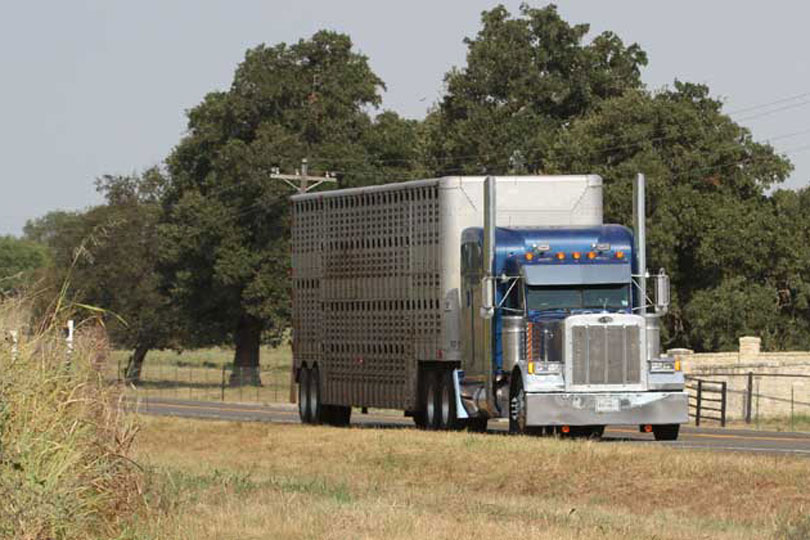By Jessica Domel
Multimedia Reporter
America’s ranchers and livestock haulers have just days left before the waiver granting them extra time to comply with electronic logging device (ELD) mandate expires March 18.
Officials with the U.S. Department of Transportation’s Federal Motor Carrier Safety Administration (FMCSA) recently sat down with the Texas Farm Bureau (TFB) Radio Network to clarify what’s required under the law and what waivers may be available to drivers.
Below is the question and answer session with Joe DeLorenzo, FMCSA director of Enforcement and Compliance.
Q: Who is required by law now to have an electronic logging device in their truck?
A: The way that the law reads currently is that any drivers that prior to the implementation of the rule are required to fill out a paper log book, those drivers are required to switch over to have an electronic logging device with some exceptions.
Q: What are those exceptions?
A: Well, I think the ones that come up primarily are if a carrier that is currently filling out a log book only fills it out on what we call an occasional use exception. So, there’s an exception that if you only have to fill out a log book less than eight days out of every 30, you could stick with your paper log. The other most common exemption for ELDs is the pre-2000 model year. So those drivers that are using trucks that are older than year 2000 are not required to have an ELD because of the technical difficulties with getting that installation done on the older vehicles.
Q: The 90-day waiver for livestock haulers is set to expire in March. After that point, what types of haulers will be required to get an ELD and who’s not required?
A: For livestock, we could start with the original discussion that we just had. If those livestock haulers are required to fill out a log book, and they’re doing it on a regular basis more than eight days in every 30, then they would have to have an ELD. But there also is an exemption from all of the hours of service regulations, which includes the number of hours you have to drive as well as the ELD rule for those livestock haulers that are operating within 150-mile radius. Those drivers are not required to have a log book or an ELD or comply with the hours of service regulations.
Q: If a driver is taking cattle from Texas to Kansas, that driver would then need an ELD unless they have an older truck, correct?
A: That’s right or unless it’s not a regular activity. We do see that where some of these drivers and ranchers will take one or two trips a month and if they stay below the eight days, they also would not be required to have an ELD.
Q: What is required of people who need to have an ELD? Do you need to only have the device or are there other things that are needed to go along with having that device?
A: Well, primarily now, it’s having the device and continuing to use it in accordance with the regs. It really functions just like an electronic version of the paper log. They have to have it. They have to maintain it, the records electronically, just the way they do for their log books. If they’re stopped, then an officer asks them for their logs, they present them the ELD. So, it really just functions the same way that it does now if you’re operating on a paper log.
Q: How many hours are they allowed to drive under the ELD before they need to stop and take a break?
A: There’s sort of a two-part answer to that question. The general hours of service rules are 11 hours driving in a 14-hour work day. But I also think it’s important to remind folks, especially the livestock and other agricultural commodity carriers, of that 150-mile exemption. In this case, the 11 hours and 14-hour workday doesn’t start until they exit that 150-mile radius. So, they will probably have several hours additional to drive and work in addition to the 11 hours driving and the 14 hours working.
Q: If a driver stops to get gas or get something to eat, is that part of the drivable hours? Does that count as being on the road driving?
A: That’s not counted towards the 11 hours of driving time, but it does count towards the 14-hour workday.
Q: Are there exemptions other than the ones we’ve talked abou


Gonna be alot of dead livestock